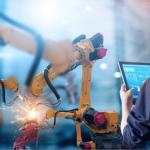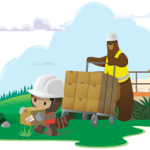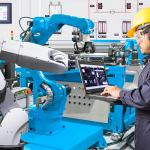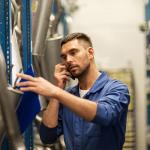In a post-pandemic world, manufacturing companies need to stay relevant by offering better services, PAAS, and outcome-based contracts.
We recently spoke with Svend Ottesen, Chief Project Manager for Vestas, a global leader in providing outcome-based contracts for green wind energy solutions, to find out how manufacturing companies can adapt to meet the needs of a changing world.
Here are a few of the highlights from our webinar with Svend Ottesen.
Digital transformation is helping manufacturers evolve
The energy industry’s global partner on sustainable energy solutions, Vestas knows a thing or two about forward-thinking. And when it comes to transforming to face the demands of the current climate, the green giant can offer a master class in innovation. “You need to be more innovative in the way you approach the market. You need to get out of old habits and look at new revenue streams and new ways of doing business,” Ottesen says.
The pandemic only accelerated the need for high-quality data and the ability to leverage it. For manufacturers looking to not just navigate the current moment but thrive, data is the North Star.
“We have started a major programme, Leap, which is a full update and refinement of the way we do business, with digitalisation at the core of it,” Ottesen states. “We have high ambitions. We want to be the best place to work. We want to be the best at utilising our capabilities and the DNA we have in our organisation. We want to change the way we work: our behaviour, the way we think, the way we operate — both upstream and on the operational side.”
Vestas’ quest to find agile solutions and the right partner
In the past, this kind of wholesale transformation would have been nearly impossible, or at least taken years but not anymore. “Leap is the opposite of optimising your business in small increments. Instead, it’s creating a powerful impact that can launch you across the cliff and let you operate in a more coherent, digitally enabled way, across markets, across cultures, and across functions,” Ottesen says.
In order to bring Leap to life, Vestas needed agile solutions and the right partner.
“We wanted Salesforce to sit in the engine room and not only challenge us, but to have a hand on the hot stove and drive this transformation forward. We didn’t want just a supplier for a piece of software, we wanted a partner for a transformation journey,” states Ottesen.
Vestas is moving towards being a more service-based company
Vestas is also leveraging digital solutions to become a more service-based company. “What we need to do is ensure a good business case for our customers. That’s why we’re in the game and how we drive our company,” Ottesen says. “But we need to view it more as a long-term partnership. Moving away from shorter contracts and selling turbines, we see an open field of opportunities in the after-market space. Service is our focus going forward — to look through a digital lens, capture new revenue streams, and take the opportunity to do new things with our partners.”
This idea of exploring new revenue streams has become popular in the current climate, especially as digitalisation increasingly allows businesses to connect with customers in new ways and on new frontiers.
“This is not a system and an IT programme; this is a change to the DNA of the entire organisation. Salesforce is driving best practices and guiding us as to how to apply quality assurance. Even though we’re starting in service, we’ll soon move onto other aspects of Vestas and Salesforce can help with that,” says Ottesen.
What’s next for Vestas?
It’s not breaking news that we’re moving towards a greener world, but Vestas isn’t just waiting around for it to happen — they’re actively driving change. Vestas is recycling their blades, focussing on creating a green ecosystem, and trading all their petrol-powered company vehicles for electric ones.
This focus on responsibility is another signpost of the New Normal, as a business’s values and messaging are increasingly becoming as important as its products or services. Vestas being proactive in this regard not only means that they’re able to hang a sign out as a market leader in sustainable practices, but they’re also able to nurture an innovative mindset across the workforce.
In the current climate, when water-cooler chats are gone and many employees are struggling with feeling disconnected, Vestas is finding ways to keep that workforce engaged. “We’ve introduced short, frequent online meetings, fast-paced decisions, MVP awards, storytelling, and alternative approaches to sustaining collaboration in the online space,” Svend Ottesen says.
With motivated employees, the ability to successfully leverage data, a focus on sustainability, and an innovative ecosystem, Vestas is well prepared to face the future.
To hear more about how Vestas is using digital transformation to thrive in a post-COVID world, check out our webinar with Svend Ottesen.



















